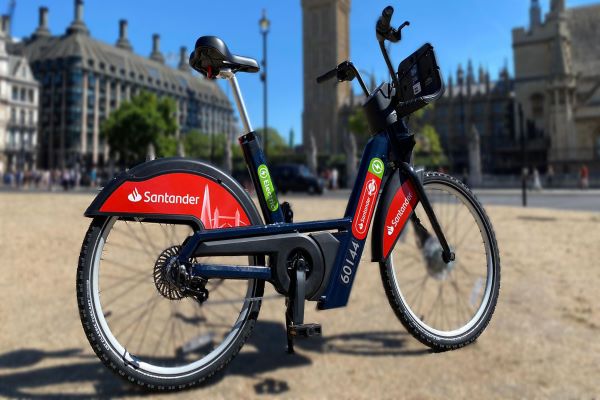Scott Barrett of mode explores the upwards trend with London’s e-bike usage.
As you may or may not be aware, in October 2022 Transport for London expanded its cycle hire scheme with a new fleet of 500 e-bikes available to hire across the scheme’s 800 docking stations. This expansion follows a distinctly successful period for the scheme, with 9.5 million hires year-to August this year which is 1.2 million higher than the same point last year. The success of this scheme and the recent e-bike expansion portends to a broader picture of the burgeoning importance of e-mobility in our cities.
It is easy to overlook the advantages a simple addition such as this can have, but let’s consider for a moment the benefits of e-bikes and how this may affect the landscape of active travel.
Firstly, accessibility. E-bikes instantly widen the appeal of cycling to a larger user base. The research is there to show that e-bikes can induce a substantial uptake by women and the elderly, and they extend the utility of this method of travel to those with physical impairments. Broadening accessibility and appeal is a fundamental aspect of changing public perception on cycling as a logical and convenient method of transport.
Not only this, e-biking unlocks an enhanced convenience factor due to its proficiency in overcoming gradients and increasing travel distances. Journeys which look out-of-reach become conceivable with the option of e-mobility. This reorients the conversation to consider biking within cities as the quicker option not just for five kilometre journeys, but ten and even 20 kilometre journeys when compared with car travel. When we consider that a vast majority of our regular journeys could be covered by alternative sustainable modes of travel, this only strengthens the case for making the switch. The increased outreach of e-mobility also brings potential to improve access to new areas and subsequently new development opportunities which can introduce the benefits of active travel to new communities.
Moreover, with countries in Europe embracing e-mobility in earnest with inventive subsidies and established e-bike consumer markets, there is hope that this expansion by TfL could bring e-bikes to the fore as e-scooter schemes have done so. Therefore instigating private ownership and encouraging people to reconsider their travel habits.
Of course, there are no shortage of barriers when it comes to encouraging modal shift to cycling within London. Continued infrastructure improvements and network provision remain essential to promote safety and convenience. Specifically to e-mobility there is the added complication of charging. Let’s hope we don’t see the TfL e-bikes suffer the same fate as many of the Lime bikes which are abandoned to clutter London’s streets.
Considering these benefits alongside the need to promote sustainable and equitable transport, the e-bike expansion is well-positioned to continue the upward trend in popularity for the cycle hire scheme. The Santander sponsorship of TfL’s scheme is contracted to continue until May 2025.
© London West (powered by ukpropertyforums.com).
Sign up to receive your free bi-weekly London West journal here















